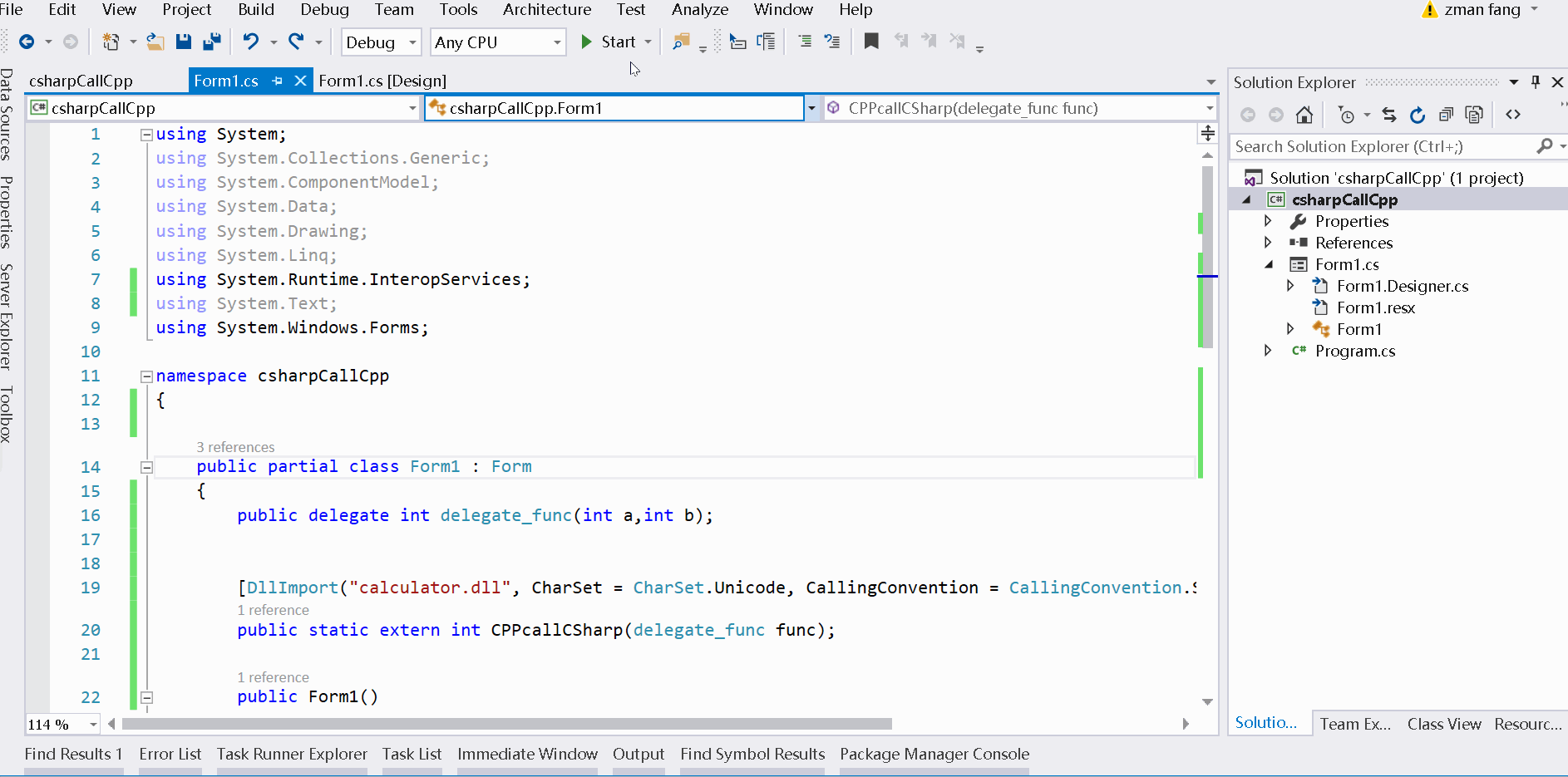C++定义函数指针,回调C#
C++定义函数指针。
typedef int (__stdcall * delegate_func)(int a, int b);
暴露接口:int __stdcall CPPcallCSharp(delegate_func func);
方法实现:int __stdcall CPPcallCSharp(delegate_func func) { return func(1,2); }
头文件calculator.h
#ifndef LIB_CALCULATOR_H #define LIB_CALCULATOR_H typedef int(__stdcall *delegate_func)(int a, int b); int __stdcall CPPcallCSharp(delegate_func func); #endif
源文件calculator.h
// calculator.cpp : Defines the exported functions for the DLL application. // #include "stdafx.h" #include "calculator.h" int __stdcall CPPcallCSharp(delegate_func func) { return func(1, 2); }
C#定义委托。
public delegate int delegate_func(int a, int b);
添加方法:public int callBackFunc(int a, int b) { Return a+b; }
C#中实现C++接口:
[DllImport("CppLib.dll", CharSet = CharSet.Unicode, CallingConvention = CallingConvention.StdCall)]
public static extern int CPPcallCSharp(delegate_func func);
C#中调用C++接口,实现回调
public event delegate_func callBack_event =null; callBack_event += new delegate_func(callBackFunc); CPPcallCSharp(callBack_event);
using System; using System.Collections.Generic; using System.ComponentModel; using System.Data; using System.Drawing; using System.Linq; using System.Runtime.InteropServices; using System.Text; using System.Windows.Forms; namespace csharpCallCpp { public partial class Form1 : Form { public delegate int delegate_func(int a,int b); //导入C++接口 [DllImport("calculator.dll", CharSet = CharSet.Unicode, CallingConvention = CallingConvention.StdCall)] public static extern int CPPcallCSharp(delegate_func func); public Form1() { InitializeComponent(); } public event delegate_func callBack_event =null; private void button1_Click(object sender, EventArgs e) { callBack_event += new delegate_func(callBackFunc);//指定回调方法callBackFunc int iret=CPPcallCSharp(callBack_event);//执行该代码时,方法callbackFunc被执行,且返回(1+2) MessageBox.Show("function return:" + iret); } public int callBackFunc(int a, int b) { return a+b; } } }
实现效果





【推荐】国内首个AI IDE,深度理解中文开发场景,立即下载体验Trae
【推荐】编程新体验,更懂你的AI,立即体验豆包MarsCode编程助手
【推荐】抖音旗下AI助手豆包,你的智能百科全书,全免费不限次数
【推荐】轻量又高性能的 SSH 工具 IShell:AI 加持,快人一步
· 无需6万激活码!GitHub神秘组织3小时极速复刻Manus,手把手教你使用OpenManus搭建本
· C#/.NET/.NET Core优秀项目和框架2025年2月简报
· Manus爆火,是硬核还是营销?
· 终于写完轮子一部分:tcp代理 了,记录一下
· 【杭电多校比赛记录】2025“钉耙编程”中国大学生算法设计春季联赛(1)